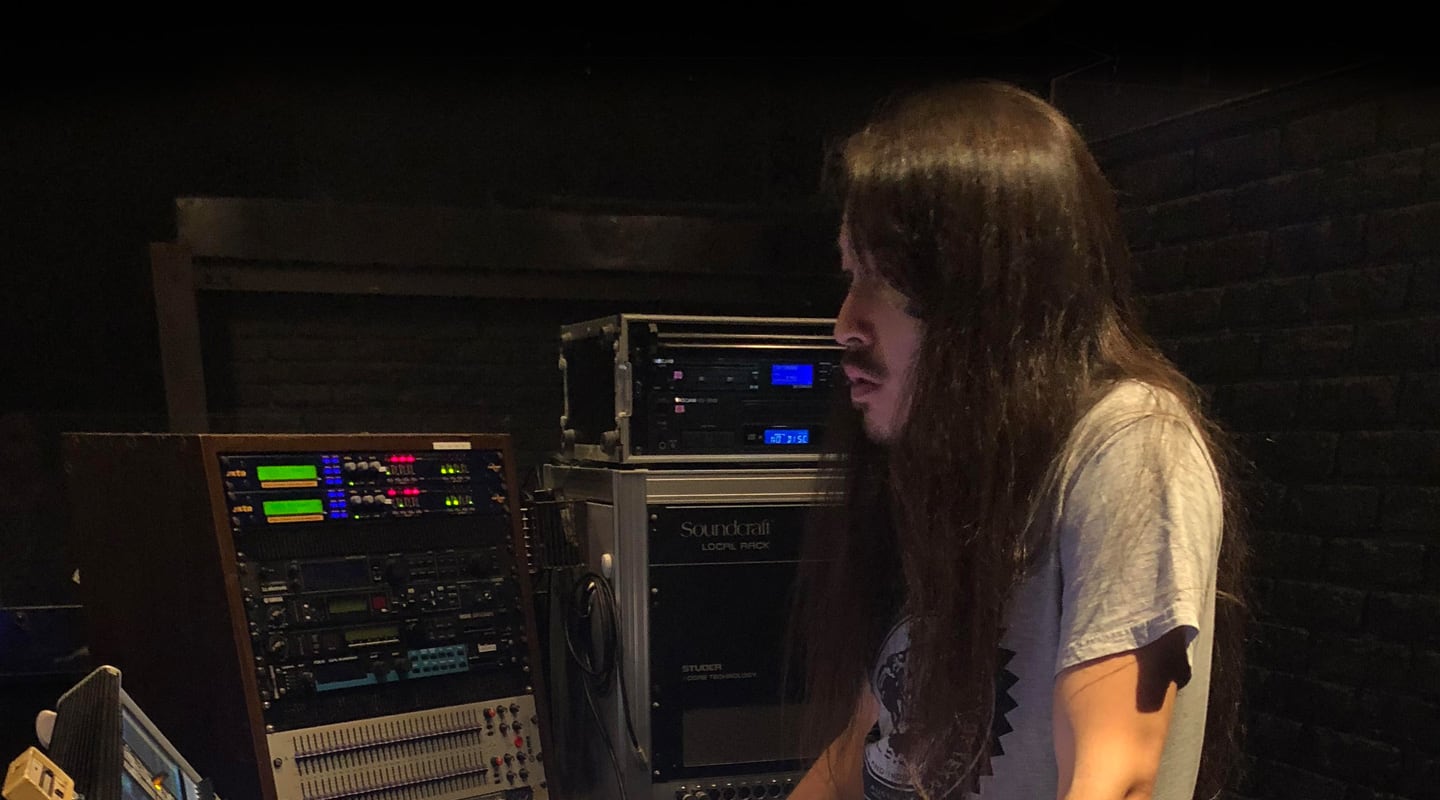
The Quick Mix: Chris Tanaka
The Quick Mix with Chris Tanaka Canwell
Who are you currently touring with?
My main gig over the last few years has been mixing FOH for Vintage Trouble out of Los Angeles. We’ve toured all over the world, and most of my other work fell by the wayside once we teamed up! I also double-dipped as their Tour Manager for a while which was a great learning experience.
Who are some other acts/bands that you have worked with?
The Jacksons are another group that I do FOH for when they play the States, as well as Evan Ross and his wife Ashlee Simpson. I also spent a few years as the house monitor guy at the Knitting Factory back in my hometown so I’ve had the opportunity to work with a bunch of bands, including The Neighbourhood (also from Los Angeles) who took me out on my first tour back in 2014.
How long have you been doing live sound and what was your path to a career in audio engineering?
Coming up on 15 years now! Like a lot of engineers, I played in a band, tried to figure out how to record an album, and everything snowballed from there. I also attended a lot of bad sounding concerts and wanted to understand why they didn’t sound better.
What is your favourite console and why?
Yamaha CL5. Not the flashiest choice, but in my opinion all of the current pro digital consoles sound good enough to mix a great show on. I’m typically mixing on the house desk with far less prep time than I’d like, so fast workflow is much more valuable to me than a slightly more pleasant tonal quality. Honorable mention to Avid’s Profile for similar ease of use, and Digico’s SD range for best overall sound! Have also heard great things about Yamaha’s new PM10 and Midas’ Heritage-D but haven’t gotten to try them yet.
Favourite microphone or any other piece of kit?
For studio work, the most exciting mic that comes to mind is the Slate VMS… The flexibility of being able to switch between that many great sounding mics and preamps without committing is a game changer for me in the studio. It’s like having the flexibility of a guitar amp simulator, without all the tone-related downsides. As far as other pieces… for live work, the AmpClamps and the Kelly Shu kick mounts make life easy for me, for the drummer/guitarist, and for the house crew.
Most memorable gig or career highlight?
Montreux Jazz Festival was incredible. There was so much technological innovation and attention to detail, not only on the audio end but in the whole experience for everyone involved. Hellfest was a dream come true for me as well; I got to see so many of my favourite bands, and I’ll never forget the site of 100,000 French metalheads enthusiastically singing along to a Vintage Trouble ballad when we played between Municipal Waste and Gojira! Finally, I did a show with Ashlee Simpson and Evan Ross at The Roxy in LA with Evan’s mom Diana sitting in the front row smiling. Definitely one of the most surreal and heartwarming gigs I’ve been a part of.
What are three mixing techniques you regularly employ?
I love using delay whenever appropriate, and most modern consoles make it easy to tap in the proper subdivision for the repeats so I’m always tapping out the tempo and riding the sends/returns/feedback level, almost like a nervous tic.
Sidechain compression is a newer technique that I enjoy using whenever I’m on the right console for it; it really helps the vocals and low end sit right when you’ve exhausted all other options.
Playlists for each song can be really useful when you get to mix the same band on the same console for a good amount of time. It’s easy to overdo and lose perspective, so I will usually only have the playlist to affect the release time on the master compressor, so that it grooves with the song tempo, and to cue up the specific FX for that song. By making those two things automatic and precise, it frees up precious mental energy that can be applied to fixing other potential issues throughout the show.
What are three pieces of gear or features that have come out and been game changers for you?
Hate to say it, but the release of the X32 was a big one for me. It was the first digital console that I really got to know, and it opened a lot of doors for me. I liked being able to throw it in my car and take it to local gigs, and also use it as an in-ear (and occasionally FOH) console for the band that I play in.
Around that time I started using tablet control regularly on consoles that support it, which was a huge game changer for tuning speakers. Being able to tweak parameters while standing in an ideal listening position is amazing!
Lastly, the RF Venue spectrum analyser looks to be a massive game changer, although I haven’t actually picked one up yet! Unless you use one, or are at a big festival with a wireless coordinator (who is probably using one), choosing the frequencies for your wireless gear feels like you’re shooting blindly. I hope to have one next time I do a monitor gig where the band is on ears.
How have your working methods changed since you began live sound mixing?
I’ve had enough time to develop a solid workflow, thankfully, so that most of the typical audio problems I used to have to deal with are solved before they materialise. More energy can be put into making sure that the show runs on time, that the bartenders can hear their drink orders, and that the other crew members and venue staff are having a good day. They’re all things that can get overlooked when you’re staring down at the console the whole time.
Any tips/words of wisdom for someone starting out?
Keep an open mind and understand that you don’t know everything. There are valuable audio-related lessons to be learned every day, whether you’re stage-handing for a corporate gig or watching a local show in a tiny bar.
For those looking to tour, I would recommend taking a good look at yourself and making sure that you’re a person who people will want to be around day-in and day-out. Find out what your worst traits are and work on them. Find a band whose music you can get into, whose members you can stand to be around, and really become a part of the team.
Finally, to those engineers who are already touring – don’t double-dip as Tour Manager! It’s a great learning experience and everyone should do it briefly, but your mixes will suffer (as will the audience experience), the artist won’t be properly taken care of, and you’ll get burned out. There are many talented TM/FOH people out there and I respect what they do, but that’s my opinion and I’m sticking to it!



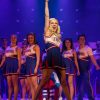



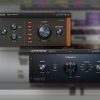










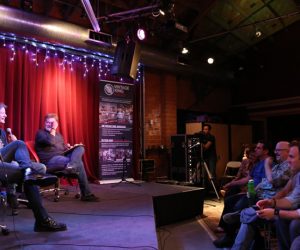


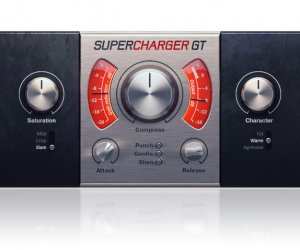


RESPONSES